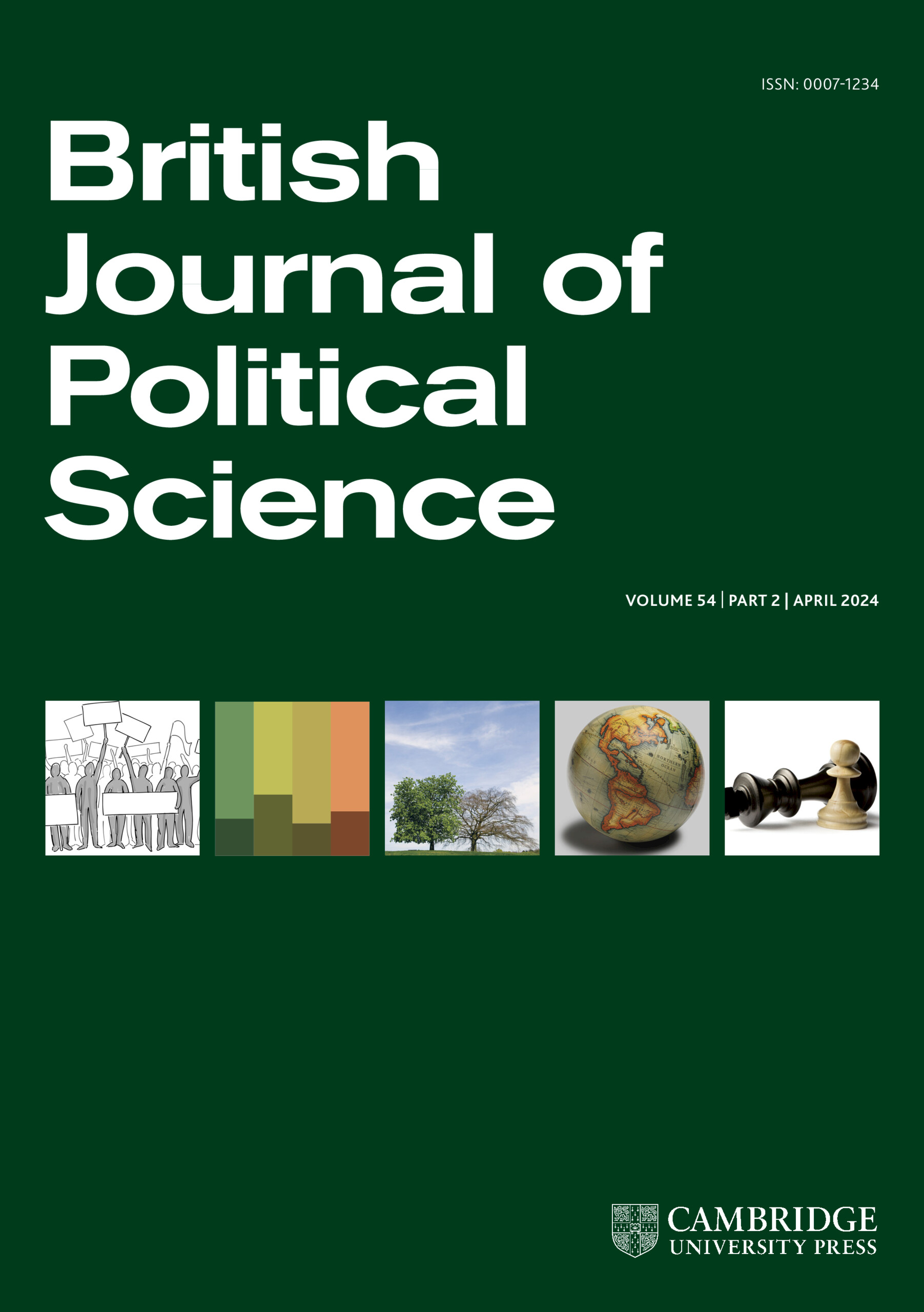政治修辞学中的词汇歧义:为什么道德不能放在一袋话里
IF 4.6
1区 社会学
Q1 POLITICAL SCIENCE
引用次数: 0
摘要
政客们如何在他们的言辞中运用道德诉求?先前的研究表明,道德在精英沟通中起着重要作用,对特定价值观的支持在不同的意识形态范围内系统地变化。我们认为这种观点是不完整的,因为它只关注某些价值观是否得到认可,而不是政治家如何将它们置于背景中。使用一种新颖的句子嵌入方法,我们表明,尽管自由派和保守派政治家使用相同的道德术语,但他们赋予这些价值观不同的含义。因此,道德政治不是关于促进特定的道德价值本身,而是关于它们各自意义的竞争。我们的研究结果强调,简单的基于词典的方法来衡量道德修辞可能是不够的,因为它们无法解释词汇使用的语义语境,因此,有可能忽视政治沟通和政党竞争的重要特征。本文章由计算机程序翻译,如有差异,请以英文原文为准。
Lexical Ambiguity in Political Rhetoric: Why Morality Doesn't Fit in a Bag of Words
How do politicians use moral appeals in their rhetoric? Previous research suggests that morality plays an important role in elite communication and that the endorsement of specific values varies systematically across the ideological spectrum. We argue that this view is incomplete since it only focuses on whether certain values are endorsed and not how they are contextualized by politicians. Using a novel sentence embedding approach, we show that although liberal and conservative politicians use the same moral terms, they attach diverging meanings to these values. Accordingly, the politics of morality is not about the promotion of specific moral values per se but, rather, a competition over their respective meaning. Our results highlight that simple dictionary-based methods to measure moral rhetoric may be insufficient since they fail to account for the semantic contexts in which words are used and, therefore, risk overlooking important features of political communication and party competition.
求助全文
通过发布文献求助,成功后即可免费获取论文全文。
去求助
来源期刊

British Journal of Political Science
POLITICAL SCIENCE-
CiteScore
8.70
自引率
4.00%
发文量
64
期刊介绍:
The British Journal of Political Science is a broadly based journal aiming to cover developments across a wide range of countries and specialisms. Contributions are drawn from all fields of political science (including political theory, political behaviour, public policy and international relations), and articles from scholars in related disciplines (sociology, social psychology, economics and philosophy) appear frequently. With a reputation established over nearly 40 years of publication, the British Journal of Political Science is widely recognised as one of the premier journals in its field.
 求助内容:
求助内容: 应助结果提醒方式:
应助结果提醒方式:


